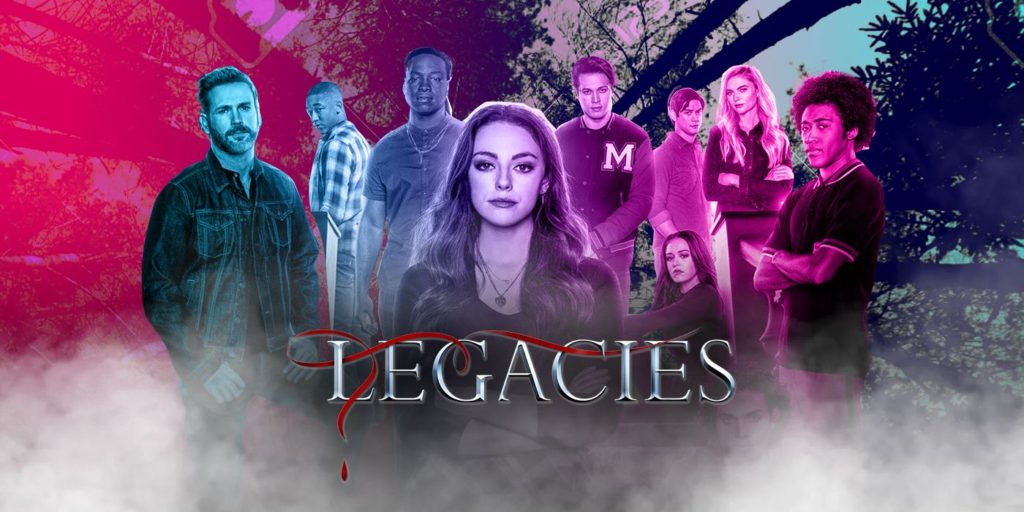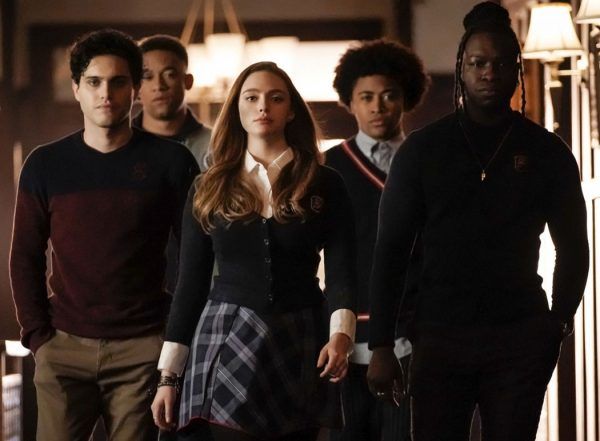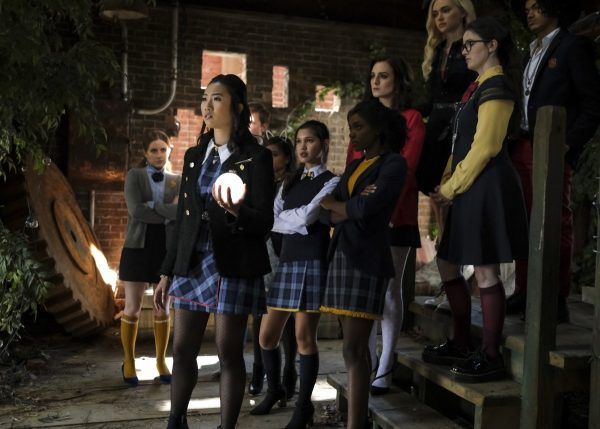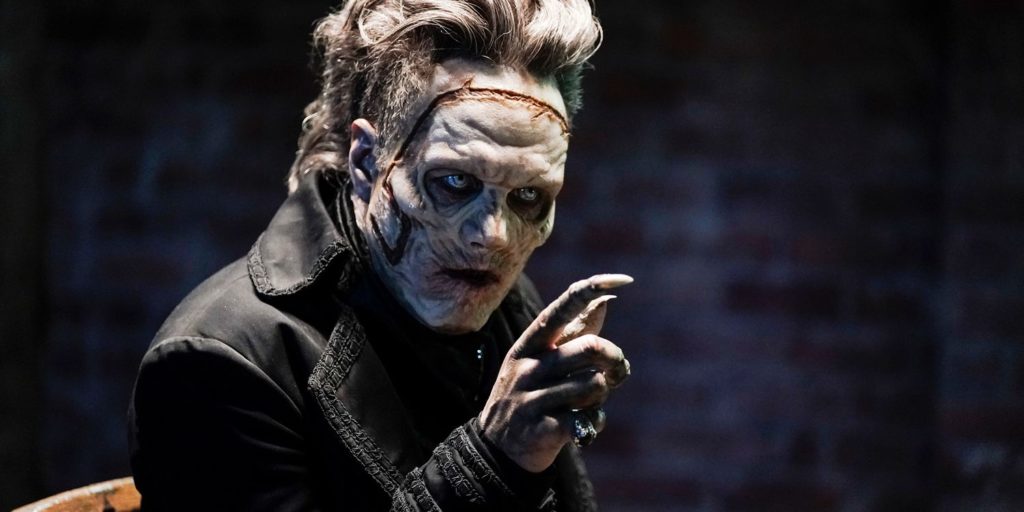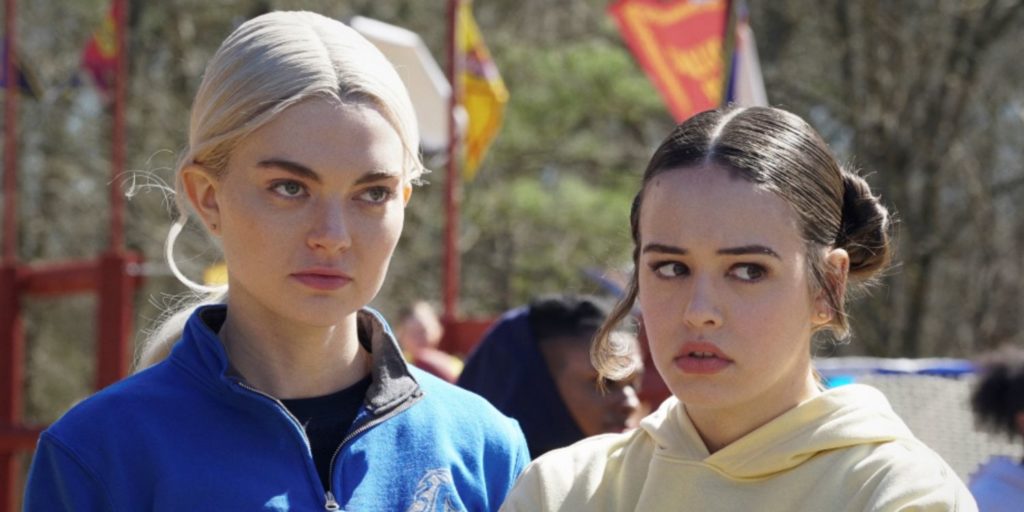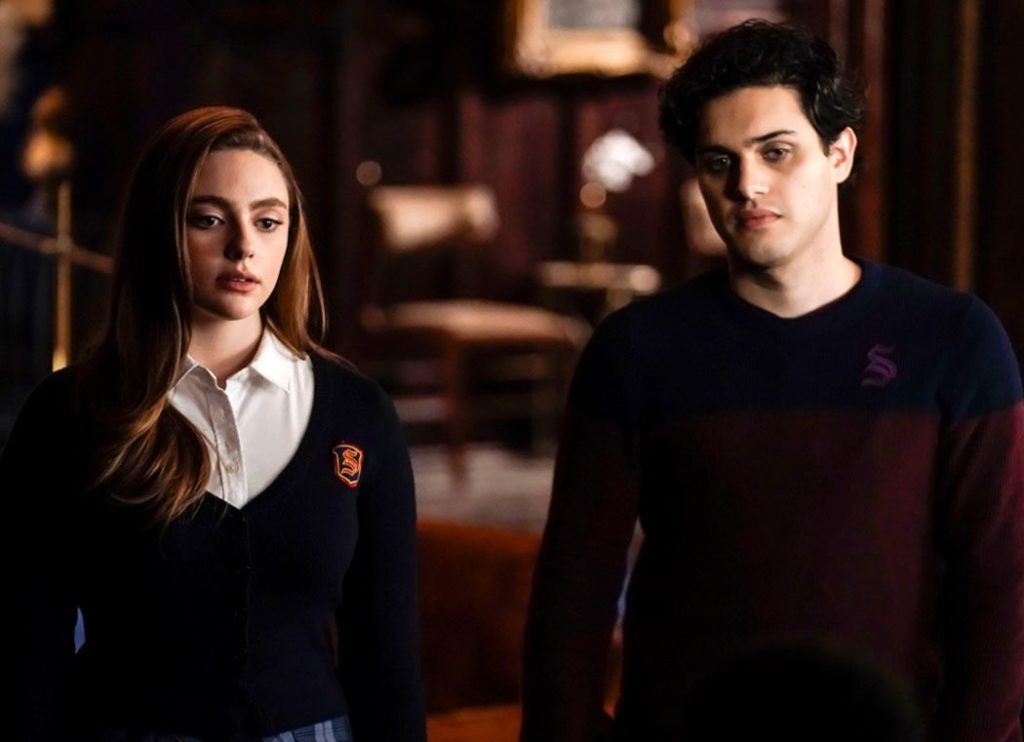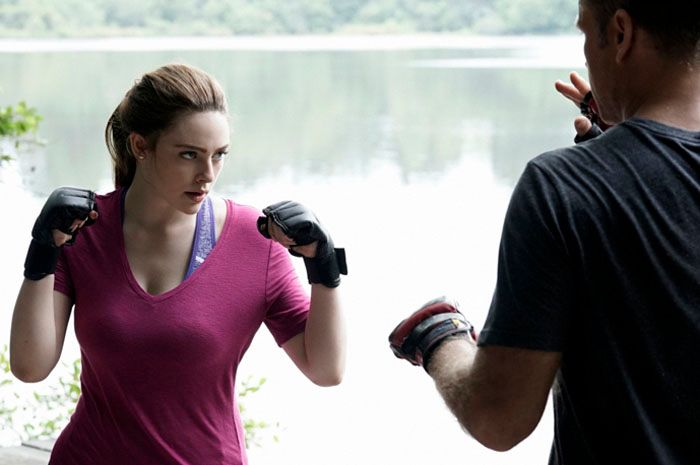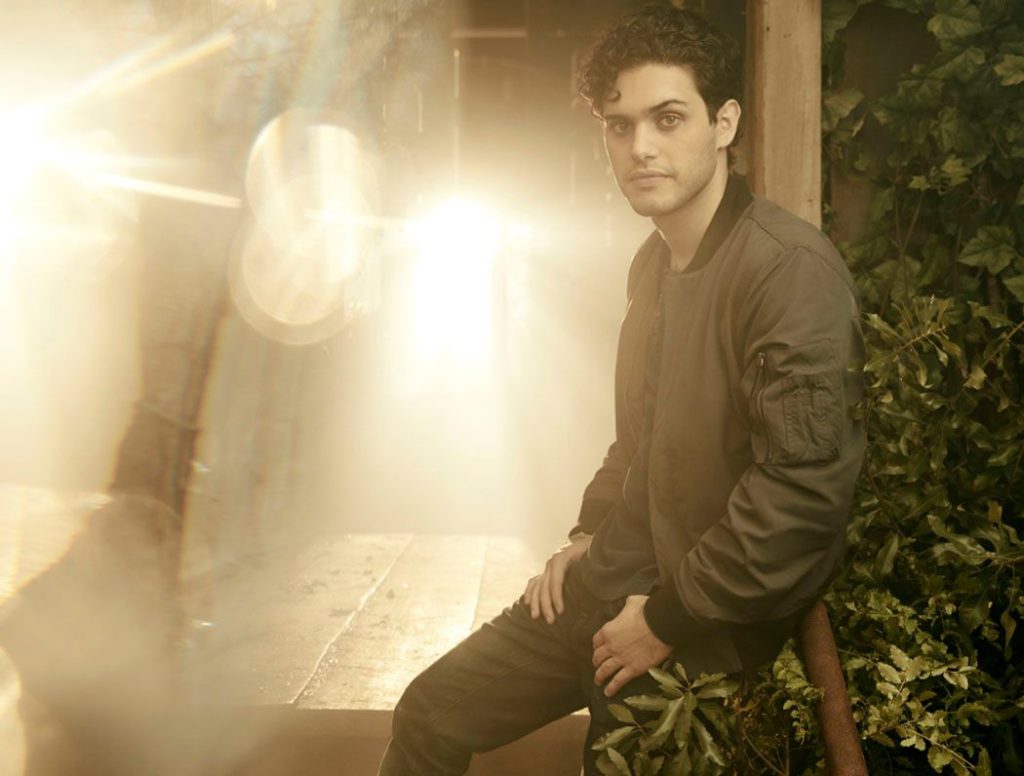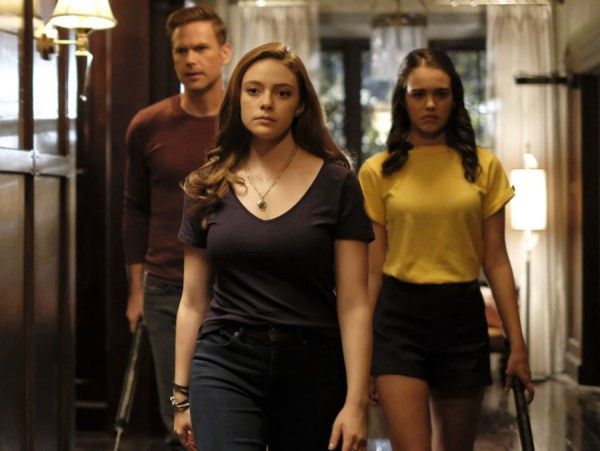The second spin-off in the world of The Vampire Diaries, Legacies, told the tale of a new generation from a well-known family with a style, tone, and path that set it apart from its predecessors. Like The Vampire Diaries, Legacies started in Mystic Falls with Hope Mikaelson (Danielle Rose Russell), a young woman who had recently lost her parents. With the help of her father figure Alaric Saltzman (Matt Davis), Hope is able to find her purpose, strength, and a new family. Hope was more familiar with vampires, magic, and monsters than Elena was since she had grown up battling some of the oddest and most consuming evil forces in existence. We were given young adult characters through Hope and other significant characters like Lizzie (Jenny Boyd) and Josie Saltzman (Kaylee Bryant), who struggled with living up to their bloodlines and finding their own happiness, family, and growth while carrying the burden of saving the world from supernaturally powered monsters who continuously hunt them. The programme has a lot of heart, style, gripping passion, ever-expanding characters, a distinctive spin on traditional mythology, genre homages, and strong energy, but it also has some problems. In order to elevate the characters’ journey, uphold the show’s original ethos, and retain its fan base, the fourth season of the show must overcome various obstacles that were exposed in season 3.
What Season 3 Did Right:
Found a way to creatively honor the TVD roots and characters without the original actors
Mystic Falls has been both a sentimental and problematic setting for the show. This village, which introduces us to a new generation in a well-known environment, is tormented by darkness and a pervasive supernatural community that is barely veiled. The drawback is that a lot of suspension of disbelief is required, especially when characters from the original series are never seen, including several who are related to the characters in Legacies and even reside in the same town. The authors try their best to overcome this anomaly by inventing explanations for the absence of important people. Season 3 did take advantage of opportunities to imaginatively celebrate The Vampire Diaries and The Originals heroes and villains without bringing back cast members who have moved on from these characters, even though there isn’t a genuine remedy as long as it’s still based in Mystic Falls.
One of the best episodes of Season 3, “Salvatore: The Musical,” did a fantastic job at executing this. The Salvatore School performs a play on the beginnings of the school that covers Stefan, Damon, Elena, and Caroline’s love, loss, and epic tales. The Salvatore School’s ethereal youths got a chance to become part of the TVD fandom in this episode, which was a total homage to the first season. It also brought back some of the most memorable early scenes from The Vampire Diaries. In the show, the absurdity of trying to summarise a tale powered by doppelgängers, sleeping curses, and supernatural syphoning was made fun of. The episode provided some fantastic emotion, connections these characters have to the original Mystic Falls characters, and even offered closure and crucial connections, allowing the teens to honour the past and embrace their distinctive differences rather than just being a fun homage episode for the fans.
In one of the season’s final episodes, “A New Hope,” a sci-fi, Star Wars, and dream dimension episode, the characters of the past were honoured while the tale and characters of the present were the main focus. With a young Hope Mikaelson and a contemporary Lizzie, Josie, and Hope inside Lizzie’s fanfiction story from when she was eleven years old, the episode delivered us a nice nostalgia. Summer Fontana, who played Hope in season four of The Originals, was able to make a comeback as a result. It also provided a fresh perspective on a well-known antagonist and enabled the characters to face their concerns head-on, providing the audience with a more insightful understanding of the issues these characters were facing as children. Additionally, it embraces Lizzie’s closet geek more, which is always a fun path to take and better illuminates her true nature.
Personal Exploration, Growth and Unity
Julie Plec excels in confronting damage, darkness, and fear and tending to it, resulting in poetic and profound growth. This season, Lizzie and Josie stood out the most for both their individual journeys and their mutual understanding and relationship. The twins can be stronger and concentrate on their own journeys since they are physically apart and have their own stories, but they also know they will be there for one another when they really need it. To help her deal with her dark magic bender, the harm she caused to others, and whatever might still be inside of her, Josie begins the season at Mystic Falls High. Josie gives herself space to recover and consider what kind of person she might be if she didn’t have to carry the weight of the world or deal with manipulative, evil uncles attempting to get her to embrace the same darkness. Additionally, she discovers how to prioritise her own needs, put herself out there, and further explore her sexuality and romantic connection with a girl she connects with, Finch (Courtney Bandeko), with whom she turns out to share even more things in common than she initially thought. Lizzie does the same thing—acknowledges her problems, deals with them, and develops further as she is reminded of her own value and her desire to keep improving. Her passion, loyalty, intuition, and persistence serve as a constant reminder of her strength as a character and how her nuanced path is one of the series’ most fulfilling. Even in her most trying times.
While Hope spends a significant portion of this season driven by her rage and sorrow, there are crucial moments when she acknowledges the death of her family and the seemingly hopeless struggle of her and Landon’s love that pave the way for future progress. Additionally, she, Lizzie, and Josie have powerful moments of unification when they realise they are all a part of her family. Cleo, a new student with her own murky past and secrets, also plays a significant role in these times (Omano Okajie).
This season, M.G. (Quincy Fouse) is following in Josie’s footsteps by leaving the Salvatore School and figuring out how to use his vampiric nature for good. He develops a friendship with former Mystic Falls quarterback Ethan (Leo Howard), who discovers the supernatural nature of M.G. and his Salvatore School classmates. M.G. can’t help but see it as an opportunity to have someone who doesn’t view him as a demon but rather as a superhero, similar to those he idolises, rather than as something that takes away his memories. Throughout his adventures as a vampiric hero, he makes mistakes but learns from them and improves. Notable male closeness is depicted in their relationship, which is also important because it demonstrates connection, unity, and other key qualities. The bromance and intimate male relationships have always been valued in The Vampire Diaries and associated universes, but in this season of Legacies, there was a focus on the significance and validity of male characters expressing their caring without the necessity for homoerotic undertones. We provide women this right in society much more often than we do men.
The Necromancer as a Frenemy
The Necromancer (Ben Guerens) is a fantastic character and the series’ most alluring antagonist to date. You can’t get enough of him because of his outrageous antics, spiteful snark and relentless scheming, dedication to being the reigning necromancer, and over-the-top theatrics. Although he is so contagious, you still support our troops even though you want him to continue causing trouble. The Necromancer provides tremendously entertaining content and comedic flair while yet maintaining the dark foundations of the inherent threat and keeping our heroes on their toes. By allowing him to collaborate with them, they were able to construct the ideal foe for the Salvatore School gang, complete with plenty of snark and clever one-liners and a hellish duo. Hopefully, he ends up like Katherine Pierce, the antagonist and sporadic opponent who keeps popping up in these folks’ lives to advance their never-ending evil schemes.
What it’s time for in Season 4
Stop using the prison world to solve every problem
The prison world offered an unsettling turn when it was originally introduced in TVD, sending Damon and Bonnie to this plane of never-ending agony where they would have to replay the same day forever. Prison worlds undoubtedly have their attraction, especially when you need to hide a strong enemy you can’t defeat or make a dying friend happy, but they have already been overdone. They no longer have the same level of claustrophobic horror or finality they once did, and they really aren’t actual solutions to any issues, especially given how many people we have witnessed escape from prison realms. The threat of Malivore (Douglas Tate), the main antagonist of the series, escaping is very real as things stand. Writing that exclusively uses jail settings is beginning to become simple, lazy, and complicated. Beyond this, we need new magical cures and horrific scenery.
Stop the continuous circle of reunion and wreckage between Hope and Landon.
We have been given an intense, passionate, and endearing love story by Hope and Landon. The fire they can spark in each other is rewarding given the loss, uncertainty, and darkness in both of their origins. The continual on and off, soul-crushing separation, loving and wonderful reunion, and ending back up in consuming sorrow again, however, is getting tiresome, stale, and unhelpful. It’s time to let Hope and Landon go their own ways if Hope is truly toxic to Landon and there isn’t a clear escape route by this point. While I can respect Hope’s devotion to and love for Landon, she has been so obsessed this season with the pain and grief of being apart from him that there is little room for anything else in her. She will still fight against evil and stand up for justice when necessary, but by allowing herself to become so fixated on one man, she is losing herself. Her difficulty to let go is understandable given that Landon was the first person she truly let herself open up to and trusted so completely. However, there is strength in letting someone you love go. This season’s sorrowful Hope was true to human feeling and alluded to the reality that breakups can sometimes be all-consuming, painful, and difficult to accept. However, it is now time for both Hope and Landon to reconnect with themselves and explore who they are apart from the relationship.
A true Tribrid – It’s time for Hope to ignite her vampire side
Being a tribrid is an important aspect of Hope’s identity and journey, but up to this point, we have only seen her as a witch-werewolf hybrid. Although taking this action will result in her passing away and starting her existence as an undead, it is necessary and will mark a significant turning point for her character and the show. Being a vampire makes your human traits stronger and, for many, helps you realise your full potential. She will be able to completely explore what this aspect of her nature entails by igniting her vampire heritage, growing into a more developed, more powerful person. She might be able to eliminate Malivore like she was originally intended to accomplish thanks to this.
Return to Phoenix Landon – or at least give him more of a purpose and identity of his own.
Landon needs to concentrate on his own path, just as Hope should concentrate on understanding and loving her own self as they part ways. That would ideally mean regaining his Phoenix essence. Having the ability to rise from the dead does provide some challenges because it would be simple for viewers to not truly fear for him when he is in danger, but Plec can make it work for him if she can make it work for strong immortal vampires. Every supernatural creature has things that haunt them, and some traumas are worse than death. He deserves to be seen as more than just a helpless being who must be saved. The Phoenix is an intriguing character who gains strength through rebirth and is propelled by it. According to the definition, a Phoenix can never truly be destroyed. This is the ideal time for that explosive comeback, giving Landon something to think about and giving him a goal outside of the tragic love tale.
Allow for more “big bads” and compelling villains other than Malivore
Malivore, a dark, all-powerful being born from the three supernatural branches that make Hope Mikaelson a tribrid—witch, vampire, and werewolf—is very much the polar opposite of her. He poses a significant threat, and the fact that Hope is the only one who can fully stop him makes for a compelling potential clash and opportunity to consider her character. If Hope is successful, this being the culmination of Season 4’s buildup and settling the score once and for all would be a compelling and sensible method to address this ongoing rivalry and finally rid the planet of Malivore monsters. It’s time to concentrate on other “big bads” if that doesn’t happen and Malivore continues to pose a threat that can never fully be eliminated or defeated.
The show stands out from other spooky content because of its original spin on traditional fairy tale monsters and its examination of their evil and frequently tragic nature. Numerous incredibly intriguing animals could contribute to the plot in ways that go beyond a single episode. The Necromancer initially appeared to be just another monster of the week, but he ended up having a remarkably macabre, fascinating, and extremely amusing enduring power. Allow other characters to have a stronger impact on the Super Squad and storyline, whether or not The Necromancer needs to be retired for a bit. No matter how strong or tied the enemy is to our heroine, four seasons is more than enough time to take him on. Ending that chapter for the time being would give an alluring, high stakes fight and push our characters—particularly Hope—in a positive direction, even if they succeed to defeat Malivore and he manages to reappear later. It would give the programme more scope for investigation of the darkness, character development, and larger plot that teenage witches, vampires, and werewolves can take on.

